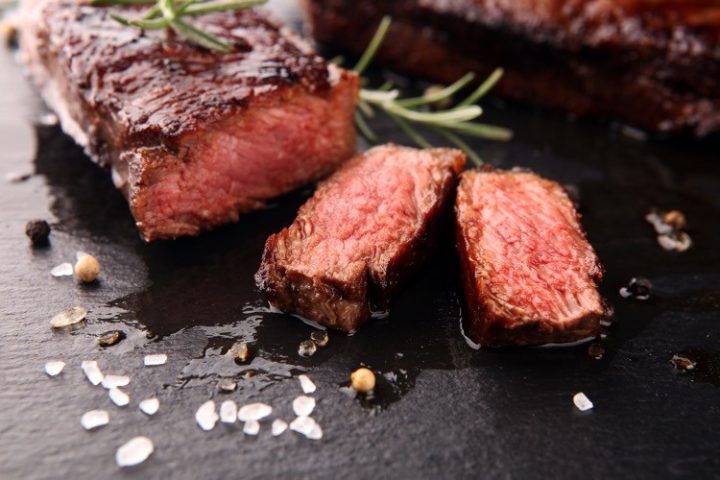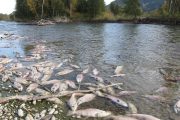
The climate-alarmist war against meat continues. Although Joe Biden hasn’t yet come out and said it, climate hysterics are pushing the narrative that, in order to meet the president’s ambitious emissions-reduction goals — “to achieve a 50-52 percent reduction from 2005 levels” — Americans will have to radically change their meat-based diets, and quickly.
Brent Kim, a program officer for the Center for a Livable Future’s Food Production and Public Health Program at Johns Hopkins University, told the Daily Mail that Americans will need to “dramatically reduce” their meat and dairy intake in order to avoid the worst climate-change scenarios.
“To avoid the most catastrophic climate change scenarios, the evidence is clear that citizens in high meat consuming countries — such as the United States — need to dramatically reduce their meat and dairy intake,” Kim said.
While Biden has yet to say anything concrete involving meat and dairy production and consumption in the United States, Kim for one believes that the federal government should have some say in the diet habits of Americans.
“I’m not talking about banning certain foods or force feeding anyone broccoli,” Kim said. “But our food choices don’t occur within a vacuum. For better or worse, what Americans choose to eat is heavily influenced by the availability of certain foods in their community, how much they cost, and whether healthy plant-based options are offered in our schools and institutions.”
Kim may not be talking about “banning” certain foods, but it sure sounds like he would like to make foods such as meat and dairy more difficult to obtain.
“These are all factors that are affected, directly or indirectly, by local, state and federal policy,” Kim said. “So there is a strong case to be made that when our tax dollars are being used to fund meals at public institutions, for example, people should be given the option of choosing healthy, climate friendly, plant-based meals.”
Will they truly be “given the option,” or will they be shamed into choosing a “climate friendly” food option instead of a hamburger?
Thus far, Biden has remained mum on his specific climate plans for the agricultural sector but the farmers and ranchers and the states most affected would like some answers as to what the president plans for their industry. Nebraska Governor Pete Ricketts, a Republican, wants answers for one of the key industries in his state — beef production.
“Green New Deal climate activists have put meat production and consumption in their crosshairs,” Ricketts said. “So far, President Joe Biden has failed to make clear statements about what his plans mean for agriculture and meat production. It’s time for Joe Biden to decide whose side he’s on: Radical climate activists or America’s farmers and ranchers.”
While President Biden has not yet said a word regarding federally mandated dietary changes in connection with climate change, Vice-President Kamala Harris has.
At a climate-change town hall in September of 2019, Harris was asked if she would support changing dietary guidelines to reduce foods considered unfriendly to the climate, specifically red meat, and how she would implement such a plan.
Harris’s answer was chilling: “The balance that we have to strike here, frankly, is about what government can and should do around creating incentives and then banning certain behaviors.”
CNN’s Erin Burnett then pressed Harris on if she would support changing dietary guidelines “to reduce red meat specifically.”
To which Harris replied, “Yes, I would.”
What Harris means by “banning certain behaviors” is clear enough. But what does she mean by “creating incentives”?
Like many climate-activist politicians, Harris and Biden may be looking at creating so-called sin taxes à la cigarette and alcohol taxes — taxes meant to curb certain behavior by making it too expensive to engage in. In other words, they may be looking to social-engineer people out of eating meat and dairy by making those foods too expensive for the average person to enjoy.
In the United Kingdom, the government recently told its citizens that in order to reach their own emissions-reduction goal of 78 percent over the next decade, people would need to eat 20-percent less meat and consume 20-percent less milk.
When is Joe Biden going to tell Americans something similar? And how does he plan on accomplishing such a reduction? How many farmers and ranchers does the Biden administration plan on shutting down to meet such meaningless climate goals?



